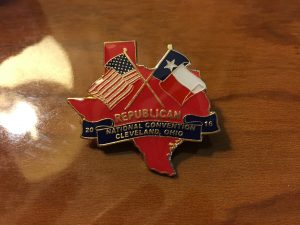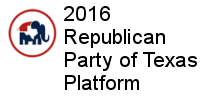DSOs And Other Carbs That We Crave
By Nelson Spear
I have had a lot of fun lately on social media talking about my favorite simple carbohydrate: Double Stuffed Oreos (DSOs). I am being transparent when I wrote that I love consuming these simple carbs. The highlight of the multiple posts about them (pictures and all) came when a good friend of mine – who happens to be a medical doctor – encouraged me to freely partake of these DSOs. He even wrote me a prescription for them.
I must now confess that I had an ulterior motive in discussing DSOs. I really wanted to talk about something else and had a difficult task of how to broach the subject without putting some of you to sleep. So please bear with me as I unpack the concept of “brain carbs.”
As we all know, over-consuming simple carbs (i.e., those foods that are simple to digest including basic sugars) is generally a bad thing. I then began to reflect on the concept of over-consuming simple carbs in other ways of our lives: If we can consume simple carbs with our mouths, can we also consume them with our eyes and ears? With that said, is there such a thing as a “brain carb?”
To answer the above questions, I started researching simple carbohydrates and the negative effects that they can have on the body. Not surprisingly, I was able to quickly conclude that simple carbs can be toxic to the body. The consequences of eating too many simple carbs include: fatigue, cravings more sugary foods, and depression. As I reflected on the health consequences, I recognized that I could perceive in myself and others similar adverse symptoms when consuming too many simple brain carbs.
Fatigue: My experience with simple food carbs – especially DSOs – is that foods like DSOs will give a quick burst of energy. However, shortly thereafter, there can be a physical energy crash. As with simple food carbs, over-consuming simple brain carbs gives us a quick jolt and then shortly thereafter, we can physically crash. I personally can attest to the fact that I have felt a definite burnout when it comes to consuming too much opinion media (more on that in a minute). From my conversations with friends on the left and the right, they too have felt the physical exhaustion following a long session of receiving opinion media. Energy derived solely on simple brain carbs, like simple food carbs, is simply not sustainable.
Cravings: As a lot of us know far too well, DSOs and other simple carbs are addictive. Who besides me remembers the potato chip media campaign, “No one can eat just one!” But now think about this: How many of us are addicted to certain opinion-based news talk shows and social media websites (often times the ones who project our personal opinions)? How many of us are willing to admit that we “feel” compelled to respond to every “stupid” remark made on Facebook or Twitter? How many of us feel that it is our mission in life to set the world straight by posting our opinion on any matter? Why do we have to respond to every outrageous statement or post?
Depression: How many of you besides myself feel an instant mental high following a large intake of simple food carbs only to be followed by an emotional “low” later? I may get this feeling because I know that I should not be eating this simple carb. It may be because I am condemned by others for not eating correctly. Is it not unlike the feeling that we sometimes get after we listen to certain talk radio hosts, television political commentators, and, at times, certain television preachers? Does anybody else besides myself feel condemned by others because I do not agree with some of these political pundits and TV preachers for not being 100% in agreement with their views?
You are what you eat. If your diet was comprised primarily of simple carbs, you would eventually develop health issues. Just the same, by Americans relying on simple brain carbs and taking the information that they receive as hard facts, it’s created emotional health issues within our society – largely reflected in the lack of respect for those with opposing views.
Further reflection on the comparisons between simple food carbs and simple brain carbs helped me realize that both are easily and quickly digestible. Let me explain. Simple brain carbs are ingested by merely watching and listening to opinion-based media. I hesitate to get into personalities, but I will point out that you can identify the dispensers of brain carbs by their fruits by asking one question, “[i]s the person or program that you are listening to or watching primarily an issuer of hard opinions or are they an issuer of hard facts?”
It seems that more and more, major news organizations implement their own “spin” on stories by editorializing, whether it’s in the headline, the featured picture, or the body of the article. The result of this seems to be a loss of the middle ground. Specifically, there seems to be less and less people in the middle. Because of the loss of the middle, there is an even more divided electorate which in and of itself creates a situation where there is a constant game of one-ups-man-ship between those on the left and those on the right.
So, is this how we got to the point where we, as a society, have a celebrity of Kathy Griffin’s status think that it okay to publish a shocking photo of our current President being decapitated? In my humble opinion, I believe that we, as a society, are to blame because we have tolerated the mixture of fact and opinion to the point that we cannot differentiate between the two. The major news sources that we once depended on for facts are no longer reliable. At its’ worst there are only opinion news outlets and programs. At its’ best, there are news outlets and programs that mix news facts and opinions. In doing so, America is losing or has lost the ability to think for ourselves.
It is also my humble opinion that we are also to blame because we have not learned the lesson that, “Just because you can, does not mean that you should.” The recent controversy which was created when Ms. Griffin mimicked the beheading of President Trump is a prime example of this point. Five years ago, no one would have entertained the thought that holding a severed head would be perceived as a joke. On May 30, 2017, Ms. Griffin “sincerely apologized” for the over the top photo shoot when she admitted to crossing the line of decency after having moved that line. She also admitted to having gone too far as a comic. Importantly, she asked for our forgiveness. However, on June 2, Ms. Griffin issued a new statement justifying the original photo shoot.
If her goal had been to avoid this mess, she should have had someone within her sphere of influence – professional or otherwise – to tell her that she was going too far with her earlier comments. However, her statement on June 2 shows to me that she is not receiving good counsel.
In all fairness, people on the right are not immune from going over the top either. While President Obama was in office, he received well-deserved criticism for multiple decisions he made, but he also received a fair amount of undue criticism. I wrote four years ago that undeserved criticism caused all of us on the right to lose credibility.
Simple carbs – food and brain – have their places in our lives. We just need to know what we are eating and their effects on us. We must be on guard to be quick to reject what one respected commentator and writer coined “political pornography” to describe the recent issue with Kathy Griffin. My suggestion is that we take a termed fast from most of these simple carbs (food and brain) and detoxify ourselves for a season. Or at the very least, be more aware of what you’re consuming.
We do this by turning away from DSOs (and other simple food carbs) and turning off the sources that spout and promote their opinions with no or few facts. During this fast, we also need to intake some body and brain proteins – the latter by reading some hard facts followed by our own contemplating of those facts and writing down our own conclusions. After our termed season of detox, we can slowly reintroduce the simple carbs – including those beloved DSOs.















The word of the day is “deflection”
deflection
[dih-flek-shuh n]
Noun:
The act or state of deflecting
Usage:
In politics, the act of pushing an alternative narrative to take the focus off of one’s own failures, mistakes or misdeeds by accusing another of similar failures, mistakes or misdeeds.
Example:
On December 8, 2016, Georgia’s Secretary of state presented credible evidence that President Obama’s Department of Homeland Security attempted to breach the state of Georgia’s voter data base.
The United States government has not yet responded to the state of Georgia’s hacking accusation; however, within 24 hours of the accusation, President Obama’s administration released details of a closed door meeting which contained details of Russia’s hacking of Democrats emails and releasing them.
Sources
1. http://events.tbo.com/news/
2. https://www.washingtonpost.